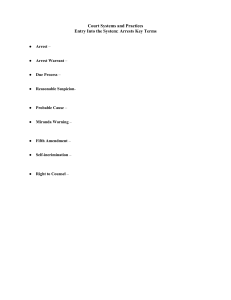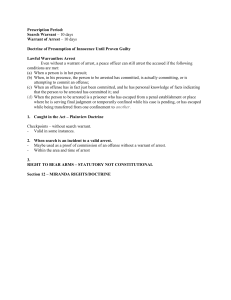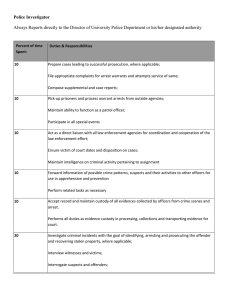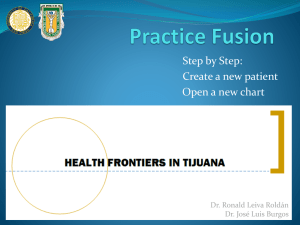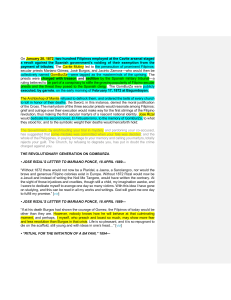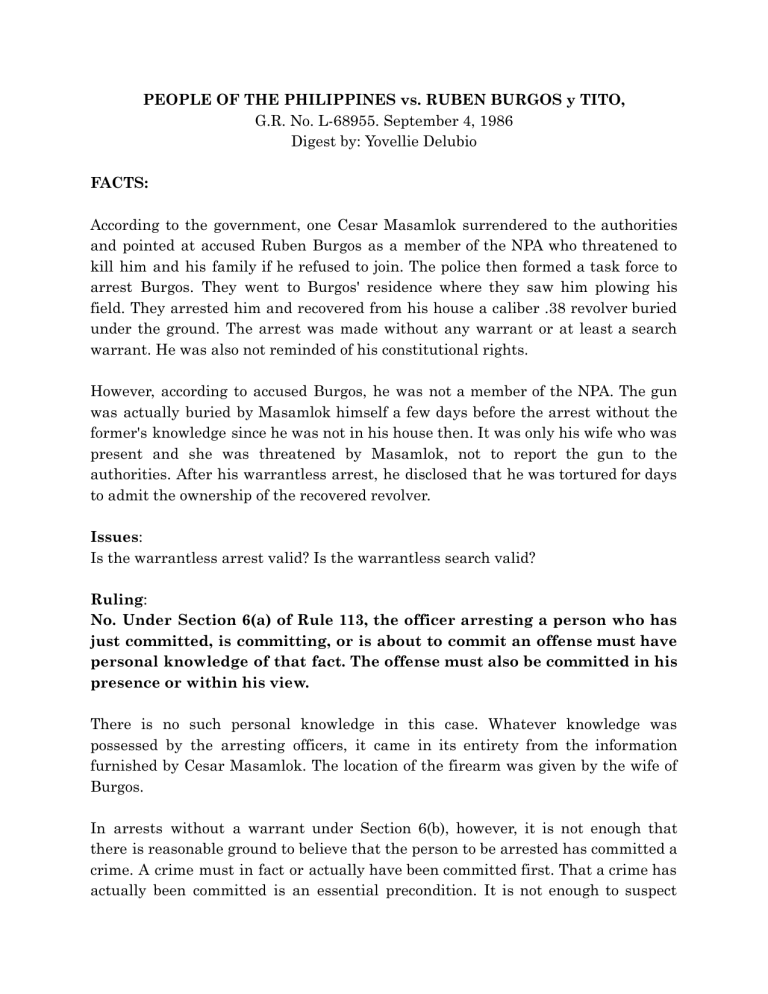
PEOPLE OF THE PHILIPPINES vs. RUBEN BURGOS y TITO, G.R. No. L-68955. September 4, 1986 Digest by: Yovellie Delubio FACTS: According to the government, one Cesar Masamlok surrendered to the authorities and pointed at accused Ruben Burgos as a member of the NPA who threatened to kill him and his family if he refused to join. The police then formed a task force to arrest Burgos. They went to Burgos' residence where they saw him plowing his field. They arrested him and recovered from his house a caliber .38 revolver buried under the ground. The arrest was made without any warrant or at least a search warrant. He was also not reminded of his constitutional rights. However, according to accused Burgos, he was not a member of the NPA. The gun was actually buried by Masamlok himself a few days before the arrest without the former's knowledge since he was not in his house then. It was only his wife who was present and she was threatened by Masamlok, not to report the gun to the authorities. After his warrantless arrest, he disclosed that he was tortured for days to admit the ownership of the recovered revolver. Issues: Is the warrantless arrest valid? Is the warrantless search valid? Ruling: No. Under Section 6(a) of Rule 113, the officer arresting a person who has just committed, is committing, or is about to commit an offense must have personal knowledge of that fact. The offense must also be committed in his presence or within his view. There is no such personal knowledge in this case. Whatever knowledge was possessed by the arresting officers, it came in its entirety from the information furnished by Cesar Masamlok. The location of the firearm was given by the wife of Burgos. In arrests without a warrant under Section 6(b), however, it is not enough that there is reasonable ground to believe that the person to be arrested has committed a crime. A crime must in fact or actually have been committed first. That a crime has actually been committed is an essential precondition. It is not enough to suspect that a crime may have been committed. The fact of the commission of the offense must be undisputed. The test of reasonable ground applies only to the identity of the perpetrator. In this case, Burgos was arrested on the sole basis of Masamlok's verbal report. Masamlok led the authorities to suspect that the accused had committed a crime. They were still fishing for evidence of a crime not yet ascertained. The subsequent recovery of the subject firearm on the basis of information from the lips of a frightened wife cannot make the arrest lawful. If an arrest without warrant is unlawful at the moment it is made, generally nothing that happened or is discovered afterward can make it lawful. The fruit of a poisoned tree is necessarily also tainted.
